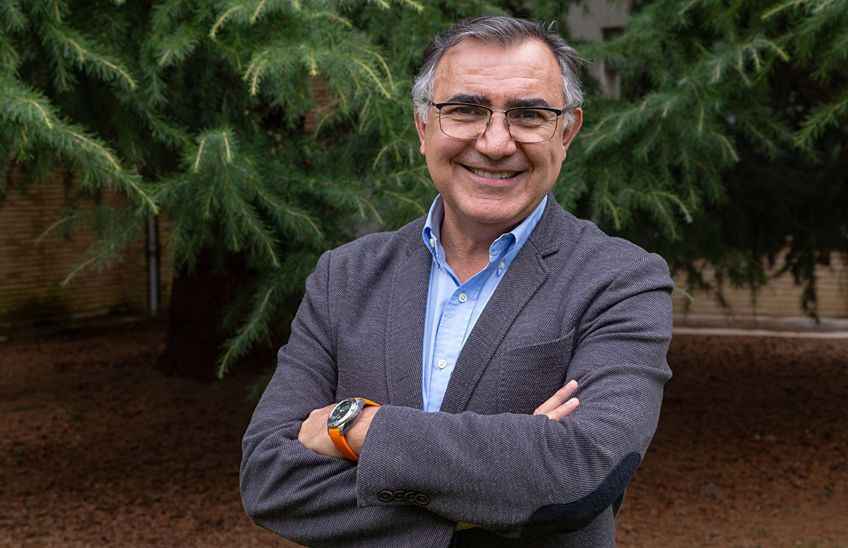A lighthouse in the midst of war: how palliative care can illuminate spaces for coexistence between Palestinians and Israelis
Dr. José Pereira, researcher of Institute for Culture and Society (ICS) and professor of the School of Medicine, has led an online course on palliative care for professionals partner-health professionals from Israel and Palestine.

FotoManuel Castells<br>/José Pereira, investigador del Instituto Cultura y Sociedad y profesor de la Facultad de Medicina de la Universidad de Navarra.
08 | 05 | 2024
In the face of the horror of war in Palestine and Israel, palliative care can stand as a small beacon capable of illuminating spaces of peace and coexistence between Palestinians and Israelis. This is demonstrated by the online course directed by Dr. José Pereira, researcher and educator of the ATLANTES Global Observatory of Palliative Care of the Institute for Culture and Society (ICS) and professor of Palliative Care and Education Medical Care of the School of Medicine of the University of Navarra, to 37 social and health professionals from Israel and Palestine.
For five Sundays, doctors, nurses, psychologists, social workers, therapists and spiritual companions from Jerusalem, Tel Aviv and the West Bank shared sessions on palliative care. The course was sponsored by the project Rozanaan international organization that operates in Israel and Palestine to promote the access of the population to health care and to establish links between the two communities.
This year they chose palliative care as topic and approached Pallium Canada, a non-profit foundation that Pereira founded in 2000 and with whom he continues to collaborate since moving to Navarra a year ago. Annually, the organization offers this training to 9,000 professionals from different disciplines in Canada.
"It has been one of the most incredible experiences of my degree program. We have learned a lot about human resilience," Pereira says. And he stresses that "these people, who are suffering, are still able to find the way to learn together and have very deep discussions. The desire to care for people with serious and advanced illnesses and help them live and die better has been a place where they are finding common ground. The relationship between the participants has been incredible." In this sense, he values that "everyone has been very respectful and has conveyed that they empathize with each other's suffering, on both sides. They are concerned and want a place of peace. The empathy between them is very present and there is a deep respect".
The values intrinsic to palliative care have helped generate these bonds: "They focus not only on physical symptoms, but also on dignity and hope. They offer an opportunity to find compassion and empathy around suffering. We talk about patients' suffering, and palliative care provides a chance to put yourself in someone else's shoes."
The course, which had to be conducted entirely online to suit the circumstances, was divided into two parts. In the first part, each participant completed online modules developed by Pallium Canada. Then, divided into two groups, in which Israelis and Palestinians worked together, they tackled case studies in five online workshops, developed by Pallium Canada, directed and facilitated by Pereira, with the financial aid of two of his palliative care colleagues in Canada, a Muslim and a Jewish physician. They have led to discussions on how best to care for people with serious illnesses, quality of life, pain, spirituality and religion, among other issues, and enabled the exchange of opinions and perspectives among professionals from different backgrounds. "All the courses are very interactive and participants discuss and ask questions. Respect, empathy and a deep commitment to the care of patients and their families are felt," says researcher.
And although war has never been the focus of the course, "it is impossible for it not to have been present in an intangible way," he says. Attendees channeled their emotions through respect and messages of hope. Thanks to this program, professionals who have never worked together before have had the opportunity to do so and even schedule future meetings. A new session is already scheduled for this month, after the celebration of Ramadan and Pesach.
